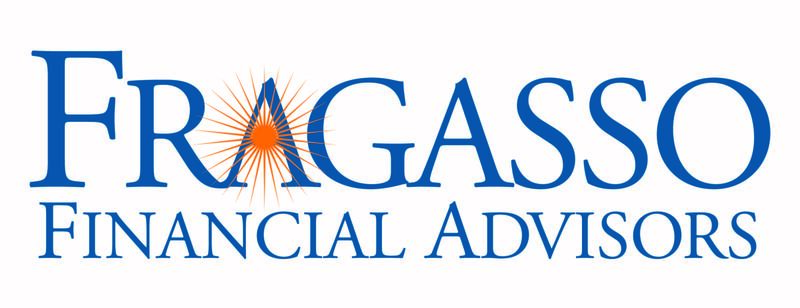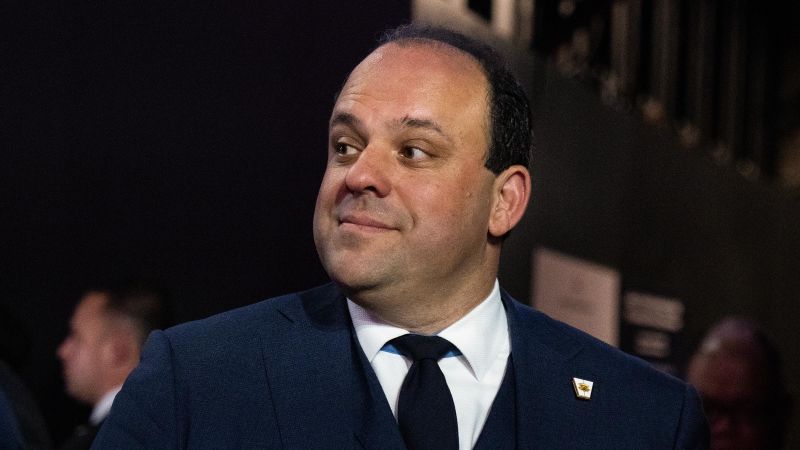As the U.S. faces the possibility of former president Donald Trump winning another term, inflation-battered Americans wonder what the financial impact will be. The presidential election is fast approaching, but it’s still anyone’s race, and according to a recent GOBankingRates survey, 37.35% of respondents believe Trump’s economic policies would be in the best interest of their money if he were reelected.
Check Out: I’m an Economist: Here’s My Prediction for the Working Class If JD Vance Is Vice President
Read Next: 7 Reasons You Must Speak to a Financial Advisor To Boost Your Savings in 2024
To find out how Trump’s policies could affect your wallet, we spoke with experts who explained six ways Trump could impact your income. Additionally, here are six ways Trump could be financially harmful for boomers.
Earning passive income doesn’t need to be difficult. You can start this week.
Tax-Free Tips
An estimated 4 million Americans work in tipped occupations, and both Trump and his opponent, Vice President Kamala Harris, support a no-tax on tip policy. While it would mean more money for workers, economic ramifications could happen.
Learn More: What the Upper Middle Class Make in Different US Cities
“When we look at our analysis of Trump’s tax-free tips proposal, we see a mixed outcome,” Jenny Thorvaldson, IMPLAN’s chief economist and data officer, told GOBankingRates. “On one hand, if workers are turning over less money to taxes, we expect to see spending increase in other areas of the economy.”
She added,” We’d also expect to see an increase in job interest in industries like limited-service restaurants, which would add approximately 12,000 jobs as a result. On the other hand, the initial loss of tax revenue to government sectors would result in a net loss of GDP of roughly $15 billion per year.”
Other experts agree that the no-tax on tip policy has pros and cons. “Ending taxes on tips would put more money in servers’ pockets, allowing them to spend more and boosting certain sectors of the economy,” David Greiner, Esq. business law and transaction said. “However, it may decrease government revenue from income taxes, limiting funding for public services.”
No Student Loan Debt Forgiveness
According to the Education Data Initiative, nearly 43 million Americans have student loan debt, collectively totaling $1.753 trillion. While the current administration has made canceling student loan debt a priority, it’s not likely Trump will since he’s called Biden’s policy “vile.”
“Not forgiving student loans would discourage higher education and slow social mobility,” Russell Rosario, financial expert and CPA, said. “Defaults would rise, damaging credit and limiting borrowing, but federal costs would decrease.”
According to Michael Schmied, a senior financial analyst at Kredite Schweiz, no student loan forgiveness could have major economic consequences.
“We’re likely to see more people stuck under the weight of their debt,” he said. “This isn’t just a personal issue — it has ripple effects. When people are buried in loans, they have less money to spend on things like homes, cars, or even starting businesses. It could slow economic growth, especially among younger generations who should drive innovation and consumption.”
No Tax on Social Security
On the campaign trail, Trump has been vocal about supporting no taxes on social security. However, some experts say his policy could be harmful in the long run.
“Eliminating Social Security taxes would provide relief for many seniors but further strain government resources,” David Brillant, tax and trust and estate lawyer, said. “Social Security provides essential income for many elderly Americans, so eliminating taxes on benefits could help make ends meet for some.”
He added, “However, the Social Security program is already underfunded, and losing this tax revenue would only worsen its financial outlook, risking benefit cuts or tax increases down the line.”
Nischay Rawal, CPA and tax advisor with NR Tax & Consulting, agreed and stated, “Eliminating taxes on tips and social security benefits may provide temporary relief for some but reduce government revenue needed for programs like Medicare and Social Security.”
Child Tax Credit
Trump has proposed raising the child tax credit from $2,000 per eligible child to $5,000, which would help families but could have a negative impact in other ways.
“The child tax credit gives more money to families, which typically spend locally and quickly. This boosts economic growth in the short term but reduces tax revenue or increases the deficit,” Bill Boersma, an analysis and insurance expert with OC Consulting Group, said.
Tax Cuts and Jobs Act of 2017
When Trump was in office, he enacted the Tax Cuts and Jobs Act of 2017 (“TCJA”), which
was a big tax code overhaul for businesses and taxpayers that is set to expire in 2025. If re-elected, Trump can extend the TCJA, which could have a significant financial impact on helping the rich.
“Trump’s Tax Cuts and Jobs Act was a big win for businesses — especially large corporations — because it lowered their tax rates significantly,” Schmied stated. “If he doubles down on this approach, we’d likely see continued business investment, which is great for the economy — on the surface,” he said. “But dig a little deeper, and you’ll notice that this also means widening income inequality.”
Schmied added, “Those at the top continue to benefit, while middle and lower-income folks may not see the same gains. It’s a double-edged sword — growth for some, stagnation for others.”
The JCJA will work in your favor if you’re not middle-class.
“The 2017 tax cuts benefited high-income individuals and large corporations,” David Fritch, attorney and CPA, stated. “While boosting stock prices, lower corporate taxes haven’t significantly impacted business investment or wage growth. More tax relief is still needed for middle-income families.”
Tariffs
Trump has touted a plan to impose a 10% universal baseline tariff on all US imports to save jobs, but that could backfire and cost Americans money.
“Broad tariffs often raise consumer prices, slow economic growth, and trigger retaliatory tariffs on US exports,” Fritch explained. “Targeted actions against unfair trade practices can be useful but require careful consideration of the economic impacts. Tariffs are essentially taxes on consumers and businesses.”
Greiner, who specializes in transactional law, said he’s also concerned about increased prices and strained international relations. He told GOBankingRates, “While tariffs may help some domestic industries, higher costs of living and retaliatory tariffs from trade partners can negatively impact businesses and consumers. Economic growth relies on access to resources and open trade.”
Editor’s note on election coverage: GOBankingRates is nonpartisan and strives to cover all aspects of the economy objectively and present balanced reports on politically focused finance stories. You can find more coverage of this topic on GOBankingRates.com.
More From GOBankingRates
This article originally appeared on GOBankingRates.com: What a Trump Presidency Could Mean for Your Income















